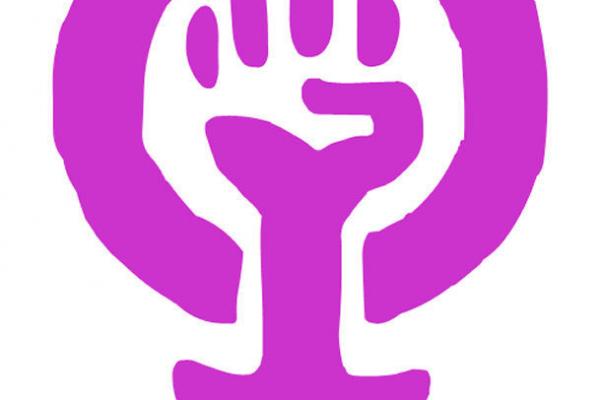“Mom,” I asked, “why didn’t the ERA pass?”
It was 1982 and I was 13 years old — an age with sharp awareness of what is fair, but with no understanding of the forces aligned to thwart history’s progress. I was unaware of the storm swirling around the Equal Rights Amendment. I was only aware of my mother’s belief that it should pass.
I wasn’t an evangelical, yet – or even a churchgoer. I was simply a girl standing at the precipice of womanhood in a household led by a strong woman who cranked up the car radio whenever Helen Reddy’s “I Am Woman” or Gloria Gaynor’s “I Will Survive” piped through station-wagon speakers.
We are woman! We are strong! We are invincible. We are survivors and we roar!
So, I had no idea that Phyllis Schlafly (a conservative Catholic) and a broad contingent of evangelicals were actively campaigning against the simple amendment that required ratification that year.
The ERA was intentionally simple. Like the 19th Amendment, the heart of the amendment was one sentence long: “Equality of rights under the law shall not be denied, abridged by the United States or by any state on account of sex.”
Seemed simple enough. It was fair. Anything less would be unfair. So how could anyone stand against it?
One year later, under the rustic ceiling of a Methodist campground pavilion in Erma, N.J., I walked down the aisle at a Sunday evening church camp meeting and accepted Jesus into my heart. Eight years after that, I would come face to face with the torchbearers of Schlafly’s culture war.
At Rutgers University, I led the worship team for Campus Crusade (now Cru) weekly chapter meetings. One night a new male staff worker approached me and explained: “I’m here now and I know how to lead worship. As a woman, it’s time for you to learn how to follow.” And that was it. That was my first direct, personal encounter with theological male dominance.
The next one didn’t take long to follow. The same school year, I co-led a Cru daily prayer meeting with a male peer. It was an awe-inspiring experience. But toward the end of the school year, a group of my male friends approached our Cru campus director to challenge the validity of my co-leadership of that prayer meeting on the basis of one thing: I was a woman. They pressured the director enough that he decided to hold a private meeting between us to talk through the issue. I ended up running out of that meeting in tears because I was so overcome with sorrow and a deep sense of betrayal — that my friends would question the validity of my leadership — not based on how well I led, but simply based on my body’s anatomy.
Then I internalized it. As painful as that experience was — and perhaps because it was so painful — I fell in line. I attended churches with rules against women leading and preaching, and believed that was simply what was right because it was what was taught to me by people I respected.
Then I encountered my first woman preacher. She was not “sharing” (as my conservative church background taught me was the kind of speaking women were limited to from the pulpit.) Susan Cho was preaching the gospel and exegeting Scripture from the pulpit. It was an Intervarsity Christian Fellowship campus meeting at the University of Southern California. My first thought when I saw her step to the podium was: “This is heresy.” But I could not deny that Susan was one of the best preachers I’d ever heard.
That was the beginning of my healing.
In the context of Intervarsity’s biblically grounded egalitarian understanding of leadership, I unfolded from the twisted contortions that I endured in the early years of my faith, forcing the body, spirit, and mind of a leader into a dank locked box marked inherent follower.
For the past few years, I have been struck by the power of the implications of the doctrine of the image of God, established in Genesis 1:26-27. God creates humanity and declares that all humans, male and female, are created in the God’s image. Then in the same breath, God says “and let them have dominion.” There is no distinction in the text regarding the kind of dominion males and females are called to. There is only the universal call of humanity to steward the earth, to protect and serve the rest of creation.
In Scripture, we are equal in the beginning! It is only after the fall, in Genesis 3, that domination enters the world. Male dominance diminishes the capacity of half of humanity to exercise dominion. As a result, it also drastically dims the image of God on earth.
This is why so many amazing women of faith choose secular arenas to plant their roots and flourish. In a world that understands its fallen-ness and has passed laws, like the Lilly Ledbetter Act, to regulate against the human propensity toward domination —women of faith are finding space to fly. There they can be fully human.
I long for the day when women and men will stand eye to eye in evangelical churches across the nation. They will speak healing and empowering words to each other: I see the image of God in you.
Maybe then the ERA will pass.
Lisa Sharon Harper is Chief Church Engagement Officer for Sojourners and co-author of Forgive Us: Confessions of a Compromised Faith.
Image: Women's power symbol, Stefanina Hill / Shutterstock.com
Got something to say about what you're reading? We value your feedback!
